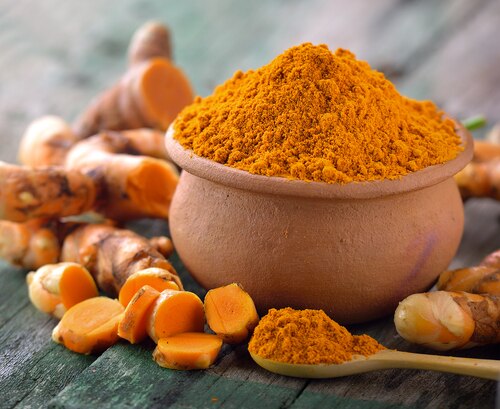Pentagamavumon-1 (PGV-1) Extracted From Turmeric (Curcumin) Shows Promise In Treating Cancer
Source: Thailand Medical News Oct 30, 2019 6 years, 1 month, 3 weeks, 6 days, 12 hours, 35 minutes ago
A recent study by scientists from Nara Institute of Science and Technology (NAIST) in Japan reports how an experimental drug agent stops
cancer cells from growing. 12 years ago, Indonesian scientists initially reported
pentagamavumon-1 (
PGV-1), an analogue of a molecule found in
turmeric and that has been since discovered to have anti-
cancer effects. In the new study, tests on
cancer cells and animals reveal that these anti-cancer effects come from
PGV-1 inhibiting a series of enzymes responsible for the metabolism of reactive oxygen species. This finding is expected to clarify how modifications to
PGV-1 will lead to its use for
cancer treatment.

The commonly used spice,
turmeric has for centuries been used not just as a flavoring, but also as medicine, with history having shown it to have a number of anti-inflammatory and even anti-
cancer benefits. These medicinal benefits come from the compound
curcumin, which is commonly sold as an herbal
supplement. Several studies have examined
curcumin's anti-cancer properties, but the high doses required and poor understanding of the chemical process through which
curcumin acts have limited these efforts.
The Japanese team lead by Professor Jun-ya Kato, at Nara Institute of Science and Technology (NAIST), had previously identified that
curcumin acts on the same reactive oxygen species enzymes as its analogue,
PGV-1. By suppressing the enzyme activity, reactive oxygen species are allowed to cause stress on cells, ultimately leading to cell death. Indeed, many anti-
cancer drugs operate similarly, but sometimes with severe side-effects due to stress on healthy cells.
In the recent study, the researchers compared the effects of
curcumin and PGV-1 on
cancer, finding that they shared many of the same properties, but that
PGV-1 did
so at higher efficiency and lower dose.
Professsor Jun-ya Kato told
Thailand Medical News, "We found that
PGV-1 arrests cells in the cell cycle at M phase and that it inhibits many ROS-metabolic enzymes.” This arrest prevents the
cancer cells from dividing, and the enzyme inhibition causes the
cancer cells to die.
Interestingly, PGV-1 was effective on numerous types of
cancers. Moreover, when administered to mice injected with human
cancer cells, the mice showed no evidence of the
cancer and no side-effects. Furthermore, unlike some other anti-
cancer drugs, the anti-
cancer effects persisted even after the cessation of
PGV-1 administration.
Professor Jun-ya Kato further added, "Our results suggest that
PGV-1 inhibits the enzyme activity more effectively in
cancer cells than in normal cells. This may be the reason why
PGV-1 selectively suppresses tumor cell proliferation with few effects on normal cells."
Scientists have long looked at the potential of
curcumin to treat
cancer. Kato believes
PGV-1 could provide a breakthrough.
Considering the high drug efficacy and low amount of side effects in animals, the researchers propose that
PGV-1 should be pharmaceutically developed as an orally administered drug for
cancer.
The findings represent a major breakthrough as for many years despite knowing that
turmeric or
curcumin had anti
cancer properties, scientists were not able to identify the bioactive molecules and also the exact pathway.
Reference: Lestari,
et al. (2019) Pentagamavunon-1 (PGV-1) inhibits ROS metabolic enzymes and suppresses tumor cell growth by inducing M phase (prometaphase) arrest and cell senescence.
Scientific Reports DOI: 10.1038/s41598-019-51244-3
